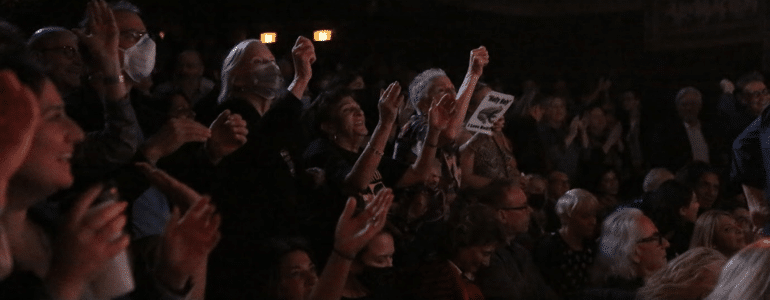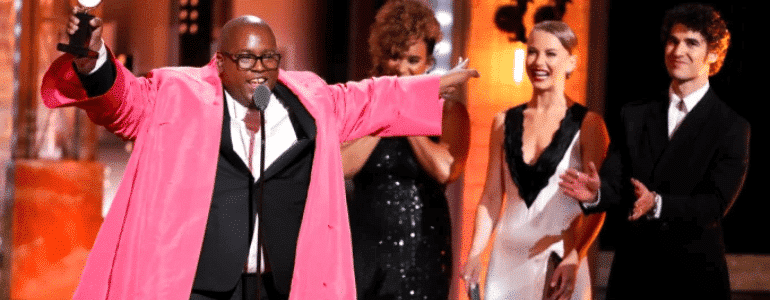My Perspective (!) on the Actors Equity Protocols for Opening Theaters for Producers.
Yesterday, Broadway’s investigative journalist, Phillip Boroff (formerly of Bloomberg News and now of his own Broadway Journal) released a blog about the hot-off-the-presses protocols for the return to live theater from Actors Equity Association.
As reported by Mr. Boroff, those protocols include things like:
- Mass transport cannot be used. A private car and driver must be provided for every AEA member reporting to/from rehearsal (Uber and Lyft services do not qualify).
- Members must be put up in hotels if they don’t live alone.
- 3 required tests before rehearsals begin, each of which must be paid for by the Producer and cannot be covered by the Actor’ Health Plans, even if they have coverage.
And a lot more.
You can read all of the posted guidelines, right on the AEA website. (They’re incredibly well organized and separated by the type of production a Producer might consider in the near future (indoor, outdoor, etc.)
Now, let me make something super-duper clear. I am not going to comment on whether these or any of the protocols are too strict or not strict enough. That debate is for the doctors. And this is obviously what the Actors Equity doctors believe is the best way to keep their people safe.
And I don’t know 1/100th of what they know.
I’m not even going to pose the question as to why other unions, other industries, other countries, schools, and so forth, etc. have different protocols. Because, like my Mom used to tell me, “I don’t care what so-and-so’s parents allow them to do!”
So please understand . . . this blog is not about the science of the protocols. Because I’m not a scientist. I know what I know and I know what I don’t know.
This next part, however, IS what I DO know.
These protocols will slow down the restart of the theater business and the rehiring of all sorts of theatermakers.
Why?
Because they involve increased costs at a time when revenues will be lower. So, as much as we all want to get back to work, rare will be the Producer who will spend more to earn less. Especially in a business like the theater . . . with as fragile of an economic model as we already have. It’s also going to decrease the efficiency and effectiveness of the creative process, but costing “time” and adding distraction.
So I don’t expect many people to use these protocols and actually get actors back to work.
And I know this from personal experience. Because seeing this list of protocols as reported by Mr. Boroff wasn’t the first I laid eyes on ’em. I saw most of them several months ago.
See, I was contemplating doing some “bubble” workshops. You know, sequestering people, making sure they were safe and stayed safe, and doing some development.
Obviously, these Bubble Workshops never happened.
Why not?
Well, for a bunch of reasons. But a big one was because these protocols made them waaaaayyyyy too expensive.
Now, maybe that’s the point. To get Producers like me to NOT do stuff right now. That’s the hidden message I see in those very well-organized documents on the AEA website. Protocols like this seem to say, “We don’t want you to start up so soon. We’d rather wait.”
And hey – maybe the union is right. Maybe theaters all over the country that want to hire union performers should just wait until everyone is vaccinated.
With protocols like this, we don’t have much of a choice.
So that’s what I’m going to do. I made it this long, right? I’m certainly not going to take MORE risk right now . . . with anyone’s health or with the health of the production.
And I’d bet the last year and a day that most Producers will do the same thing.
– – – – –
I’m rebooting my podcast with a pandemic twist. Follow here and get weekly micro episodes (15 mins or less) about a timely topic affecting the theater and theatermakers. It’s like talk-radio for the theater . . . but short. 🙂 Get the updates on the next release here.
Podcasting
Ken created one of the first Broadway podcasts, recording over 250 episodes over 7 years. It features interviews with A-listers in the theater about how they “made it”, including 2 Pulitzer Prize Winners, 7 Academy Award Winners and 76 Tony Award winners. Notable guests include Pasek & Paul, Kenny Leon, Lynn Ahrens and more.













